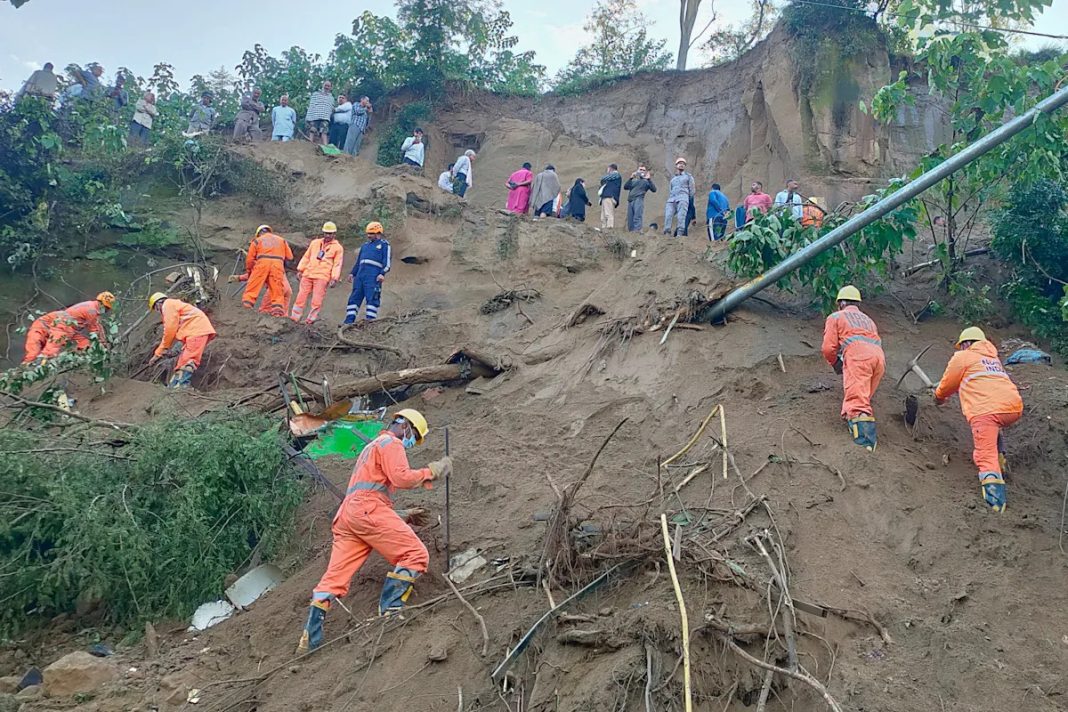At least 15 people have been killed after debris from a massive landslide hit a bus in India’s northern state of Himachal Pradesh, local authorities have said.
The bus was travelling on a hilly stretch near Bilaspur district when, late on Thursday, a landslide struck following days of torrential rains. At least 20 to 25 passengers were on the bus at the time. Nine men, four women and two children were among those killed, police said.
Three injured children were rescued and admitted to a local hospital for treatment, according to a statement from the office of Sukhvinder Singh Sukhu, the state’s highest elected official. Rescue operations continued on Wednesday in an attempt to find other missing passengers who are believed to be dead, police said.
ANI visuals showed the bus’s mangled wreckage lying on a mountain road as rescuers dug through the debris for the people buried when the landslide struck. Other television visuals from the site showed some rescue workers clearing mounds of earth with heavy machinery while others sifted through mud-soaked belongings.
Intermittent rains have lashed the region since Monday, making the fragile mountain slopes unstable.
President Droupadi Murmu and Prime Minister Narendra Modi offered their condolences following the landslide.
Extreme rains this year have caused flooding and landslides across the South Asian region, which includes India, Pakistan, Bangladesh, Bhutan, Sri Lanka, Afghanistan, the Maldives and Nepal.
Flash floods swept away an entire village in India’s northern state of Uttarakhand in August, while at least 44 people were killed in neighbouring Nepal over the weekend due to mudslides and flooding triggered by severe rainfall.
The weekend’s heavy rainfall arrived at the end of Nepal’s monsoon season, which usually begins in June and ends by mid-September. It also left parts of the capital, Kathmandu, flooded and caused the cancellation of all domestic flights on Saturday.
Experts say human-caused climate change is intensifying South Asia’s monsoons, which traditionally run from June to September and again from October to December. The rains, once predictable, now arrive in erratic bursts that dump extreme amounts of water in short periods, followed by dry spells.

